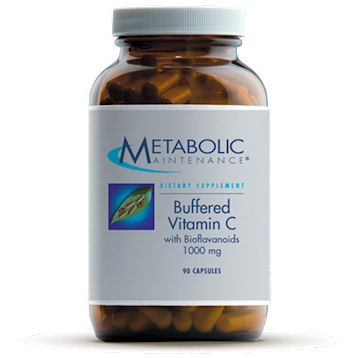Introduction
In the world of health and wellness, Vitamin C is often hailed as a superstar nutrient. It is known for its numerous benefits, including immune system support, skin health, and antioxidant properties. While many people get their daily dose of Vitamin C from fruits and vegetables, there's a lesser-known but equally effective way to incorporate this essential vitamin into your daily routine – Vitamin C powder. In this comprehensive guide, we'll explore the wonders of Vitamin C powder, its benefits, usage, and much more.
1: What is Vitamin C Powder?
Vitamin C powder is a concentrated form of ascorbic acid, which is the chemical name for Vitamin C. It is a versatile and stable form of the vitamin that is easy to incorporate into your daily routine. Available in both synthetic and natural forms, it provides a convenient way to increase your Vitamin C intake.
2: The Benefits of Vitamin C Powder
Immune System Support: Vitamin C is renowned for its immune-boosting properties. It stimulates the production of white blood cells, which are essential for fighting off infections and illnesses.
Antioxidant Power: Vitamin C is a potent antioxidant that helps protect your cells from damage caused by free radicals. This, in turn, may reduce the risk of chronic diseases and slow down the aging process.
Collagen Production: Vitamin C is a crucial factor in collagen synthesis, a protein that is vital for skin, bones, and connective tissues. Using Vitamin C powder can promote healthy, youthful skin and support bone health.
Wound Healing: It accelerates the body's natural wound-healing processes by promoting collagen formation, helping wounds close more quickly.
Heart Health: Studies suggest that Vitamin C may lower blood pressure and reduce the risk of heart disease by improving blood vessel function.
Reduced Risk of Chronic Diseases: Adequate Vitamin C intake has been linked to a reduced risk of chronic diseases, including cancer, cataracts, and cardiovascular diseases.
Improved Iron Absorption: Consuming Vitamin C with iron-rich foods can enhance the body's ability to absorb iron, making it especially beneficial for individuals with iron-deficiency anemia.
3: How to Use Vitamin C Powder
Vitamin C powder is incredibly versatile and can be incorporated into your daily routine in various ways:
Dietary Supplement: Mix a small amount of Vitamin C powder into a glass of water or juice, and consume it as a dietary supplement. This is a convenient way to ensure you meet your daily Vitamin C needs.
Skin Care: Vitamin C powder can be added to your skincare routine. It can be mixed with your favorite moisturizer, serum, or sunscreen to help reduce the signs of aging and brighten your skin.
DIY Face Masks: Create your own face masks by mixing Vitamin C powder with water or other skincare ingredients. This can help rejuvenate your skin and improve its texture.
Cooking and Baking: Add a pinch of Vitamin C powder to your favorite recipes. It can enhance the flavor of dishes and provide an extra dose of Vitamin C.
4: Choosing the Right Vitamin C Powder
When selecting Vitamin C powder, there are a few key factors to consider:
Purity: Look for a high-quality, pure Vitamin C powder with minimal additives and fillers. Ensure it's labeled as safe for consumption if you plan to use it as a dietary supplement.
Type: You can choose between synthetic (ascorbic acid) and natural (ascorbic acid derived from fruits) Vitamin C powders. Both are effective, but some prefer natural sources for added benefits.
Form: Vitamin C powder is available in different forms, including fine powder and crystals. The fine powder is easier to dissolve, making it more suitable for skincare, while crystals are often used for dietary supplementation.
Packaging: Opt for airtight, light-protected packaging to ensure the powder remains stable and effective.
5: Potential Side Effects and Precautions
While Vitamin C is generally safe, excessive consumption can lead to some side effects, including:
Digestive Issues: High doses of Vitamin C may cause digestive discomfort, including diarrhea and stomach cramps.
Kidney Stones: In rare cases, individuals with a history of kidney stones may be at a higher risk of developing more stones with excessive Vitamin C intake.
Iron Overload: Individuals with a condition known as hemochromatosis should be cautious as Vitamin C enhances iron absorption.
It's crucial to consult with a healthcare professional before beginning any Vitamin C supplementation, especially if you have underlying health conditions.
6: Storing Vitamin C Powder
Proper storage of Vitamin C powder is essential to maintain its effectiveness:
Keep it Dry: Ensure the powder stays dry to prevent clumping and degradation.
Protect from Light: Store the powder in an opaque container to shield it from light, which can cause it to deteriorate.
Seal Container Tightly: An airtight container will keep the powder fresh and free from moisture.
Conclusion
Vitamin C powder is a versatile and effective way to harness the numerous benefits of this essential nutrient. Whether you're looking to boost your immune system, enhance your skincare routine, or simply improve your overall health, Vitamin C powder offers a convenient and customizable solution. However, it's important to use it wisely, taking care not to exceed recommended doses to avoid potential side effects. When chosen and used correctly, Vitamin C powder can be a valuable addition to your daily routine, supporting your well-being from the inside out. So, embrace the power of Vitamin C powder and unlock its potential for a healthier and more vibrant you.




Comments